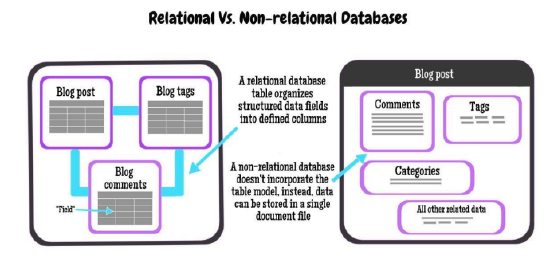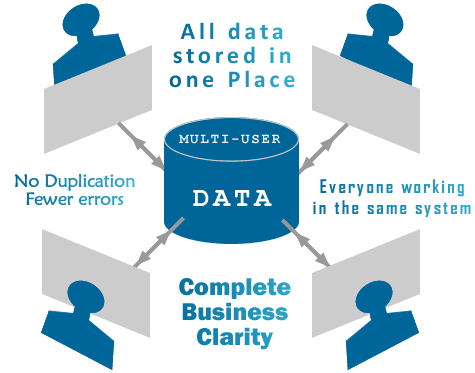1.6: Advantages of Databases
- Page ID
- 93631
In today’s world, data is prevalent in every aspect of our lives as human beings. Data is constantly being created, organized, and stored. With all this data being transferred and exchanged around the world, it is important to have an efficient and organized method to storing this data. This is where databases come in. Databases offer improved efficiency and versatility, they allow categorization and structuring of available data, and they allow multi-user access, creating an organized work environment and newer and better ways to manage data.
Efficiency comes into play specifically with businesses. Databases can handle large amounts of data as well as multiple types of data. Businesses can use databases to have data easily accessible to make operational decisions on a daily basis.
Versatility is also important in terms of accessing data. Databases can be accessed via desktop, laptop, tablet and even mobile devices. This is incredibly helpful in a time where so much importance is placed on accessing things immediately, as data can be easily retrieved at any moment. This benefit is applicable to consumers as well as businesses.
Categorization and organization are both major advantages. They allow the structuring of information in ways that are easily understandable and accessed. Certain DBMS allow relationships between entities in order to simplify the organization of data.

Accessing data in a multitude of ways by multiple different users is also a huge advantage that databases have; this is called multi-access. Multi-access is what allows multiple authorized users to have access to the same data. For example, a human resources manager at a company will have access to the same set of potential hires at a certain location as the general manager of that same location. The picture below visually describes the relationship between this shared data and the users that have access to it. (WD, 2005)

Databases offer businesses a smoother operating work situation. The implementation of a database management language such as SQL (Structured Query Language) allows businesses to access and modify data that is stored in a relational database.
Databases are constantly being used and accessed in new ways. With all the advantages that databases offer, uses will continue to grow. The accessibility, versatility and efficiency that a database can provide when paired with a DBMS is the reason why so many successful businesses are using them to this day.

